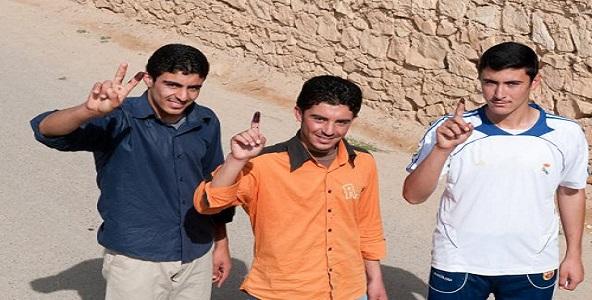
Mass convictions and executions fuel terrorism in Iraq
On January 24th, 2017 Amnesty international reported that 31 people were executed for their part in a massacre in 2014. Then, on September 25th, 2017 the organisation reported that 42 people had been executed for terrorist acts and on December 14th, 2017 38 people had been executed for similar acts. The Iraqi government seems to make up losses caused by the war against terrorist organisations by mass executions.
Following the announcement, Lynn Maalouf, Director of Research for Amnesty International in the Middle East, said “By carrying out yet another mass execution, the second in the span of three months, the Iraqi authorities have once again displayed a blatant disregard for human life and dignity.”
The past continues to fill prisons
Since the 2000s, prisons in Iraq have been overcrowded. Associated Press recalled that more than 6,000 prisoners are serving prison sentences in connection with events prior to 2013.
Today the waves of arrests, convictions and executions in Iraq are mainly due to the war (since 2013) against the Islamic State Organisation (self-proclaimed). Indeed, Iraq is exposed because of its territory and undergoes regular attacks with Syria by the terrorist organisation.
Since 2013, Associated Press and Human Rights Watch have documented that approximately 20,000 people have been arrested under Iraq’s Terrorism law. According to The Associated Press, 3,130 people have been sentenced to death for terrorism since 2013.
This law maintains the overcrowding Iraqi’s prison and the lack of judicial guarantees sentenced to death anyone in connection with the Islamic State organisation. Belkis Wille, Iraq researcher for Human Rights Watch, says, “Based on all my meetings with senior government officials, I get the sense that no one — perhaps not even the prime minister himself — knows the full number of detainees”.
The Iraq’s Terrorism law a vicious circle
Human Rights Watch explained that it had informed the government that the use of the Terrorism Act in a quasi-systematic manner, resulting in summary trials and failure to respect judicial guarantees, was contrary to genuine justice and victims’ rights.
The UN Special Rapporteur on extrajudicial, summary or arbitrary executions, Agnes Callamard met with a victim during her visits in Iraq in November 2017 for her report launched the 5 June 2018: "We don’t need to be like them. We’ve seen enough murders. Do not execute more people."
The Special Rapporteur on extrajudicial, summary or arbitrary executions, in her report, stated: “The people of Iraq, the victims and survivors of the conflict, deserve a legal framework and a judicial response that properly reflect the nature of the crimes committed, which are on par with atrocity crimes investigated and tried in other parts of the world. The Anti-terrorism Law is not appropriate to address the crimes committed, hold those responsible to account, and provides victims with the remedies and reparations to which they are entitled.”
The Iraqi government now faces a major issue: the overcrowding of its prisons. As a result of the incarceration and systematic sentencing of every person identified as having links to a terrorist organisation, prisoners accumulate, and prisons become a breeding ground for terrorist propaganda. This propaganda is particularly evident in the high security prison of Nasiriyah Central, which houses more than 6,000 prisoners convicted of terrorism.
During a recent visit to Iraq, the head of the International Committee of the Red Cross (ICRC) Peter Maurer warned: “It’s the tortures, the ill treatments, the continuous long-term bad conditions in detentions which have radicalized a lot of actors which we find again as armed actors on the battlefield.”
The death penalty subject to the electoral schedule
Elections in the country have also impacted this wave of executions and sentenced to death. Indeed, according to The Associated Press, Prime Minister Haider al-Abadi, who ran in May to retain his position in national elections, had repeatedly called for accelerated death sentences for those charged with terrorism.
The victory of the two anti-system lists on 12 May 2018 ahead of the current Prime Minister may defeat this wave of executions in the country.
Today, the country’s political divide is widening, making decision within the government more difficult. The Communist and Shiite majority party following these May elections, without however winning enough seats in Parliament, will try to create an opposition coalition by joining forces.







